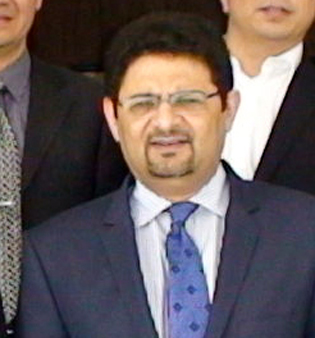
Pakistan has been experiencing governance and policy failures in the power sector for the past many decades and the only solution to it is to move away from the single buyer model and privatise the entire sector, said former finance minister Miftah Ismail.
Speaking at a panel discussion titled Pakistan’s Power Policies - Ensuring Access and Affordability on Wednesday, he lamented that the country continues to repeat the same mistakes in the energy sector over and over again.
He added that transmission and distribution losses in the sector stand at 19% at present while 10-12% is lost further on account of power theft.
Detailing further about the privatisation model, he said many challenges would be faced after opening up the market for private companies, however, contracts with power plants inked in 2013 and 1994 and with furnace oil plants in 2002 should be renegotiated. He added that the circular debt had swelled to Rs2.3-2.4 trillion and the National Electric Power Regulatory Authority (Nepra) failed to do any value addition.
He also blamed the Oil and Gas Regulatory Authority (Ogra) for its inaction in the gas segment.
The former lawmaker further called for a holistic review of power sector and emphasised that reforms in energy space can alone raise GDP by 2-3%. Ismail pointed out that Indian industries paid nine Indian rupees per unit of electricity while Pakistani industries were charged Rs25 claiming that it could make local industries incompetent.
He informed the participants that due to the ongoing recession in the country, electricity demand had contracted.
Also speaking on the occasion, All Pakistan Textile Mills Association (Aptma) Executive Director and former member energy of Planning Commission Shahid Sattar supported Ismail’s views and said the initial step towards privatisation is business-tobusiness deals and recalled that Nepra permitted such deals in January 2021.
“However, distribution companies approached courts and secured a stay order on this move,” he said.
“The very first action in moving towards privatisation turned into a controversy. This way, there can be no market development.” He underlined the need to introduce competition at every level in the sector.
The official detailed that Pakistan followed a revenue based load-shedding model meaning that blackouts were frequent in poorer areas, which generated low revenues for the power companies or where power theft was rampant.
In this regard, Sattar recommended installation of prepaid meters so that every consumer would pay full bill and the menace of power theft can be eradicated.
He also criticised cross power subsidies given to household consumers from the industrial sector in Pakistan.
“The government should exit power sector and hand it over to the private firms,” he said.
“The implementation of Competitive Trading Bilateral Contract Market (CTBCM) model did not reduce prices.”
Pakistan’s tariff model is based on suppressing electric demand and it needs to be rethought, he said.
The official remarked that as an authority, Nepra needed to be strengthened and economists and tariff specialists should be employed in it.
Reiterating the same, World Bank Energy Specialist Saadia Qayyum said Nepra’s capacity needed to be improved as “our coal power plants are most expensive in the region and Nepra is unable to make them cheaper”.
She was of the opinion that the power regulator should be independent because at present, Nepra determines tariff and the government take days or sometimes weeks to notify it to the public due to its vested interests. SDPI Energy Lead Hina Aslam said that to move towards a privatisation model, restructuring of state-owned companies is a must.
“There is also a need to understand the implications of this transition and which sectors of the economy would be impacted,” she added.

















COMMENTS
Comments are moderated and generally will be posted if they are on-topic and not abusive.
For more information, please see our Comments FAQ